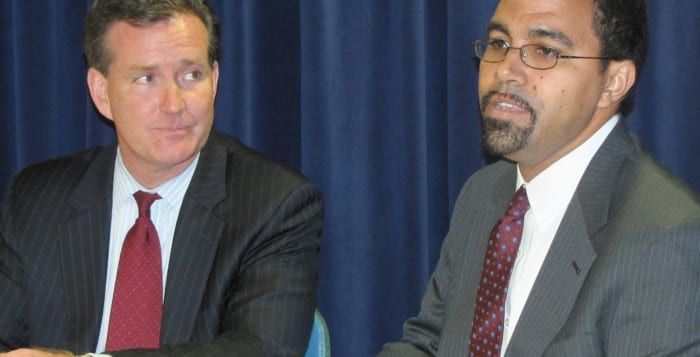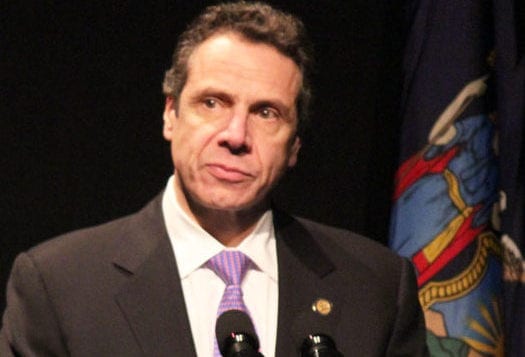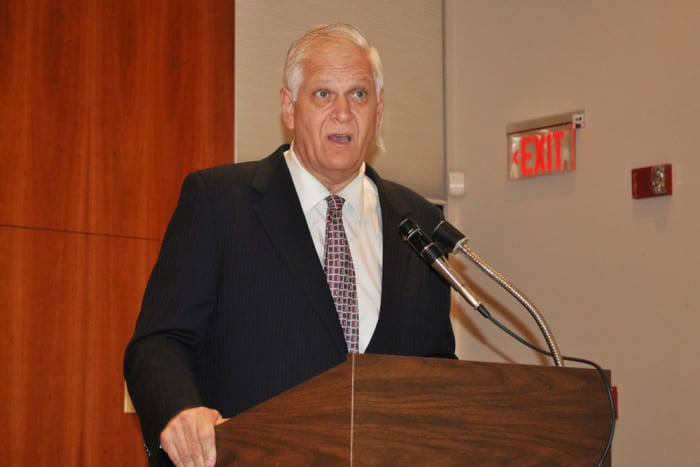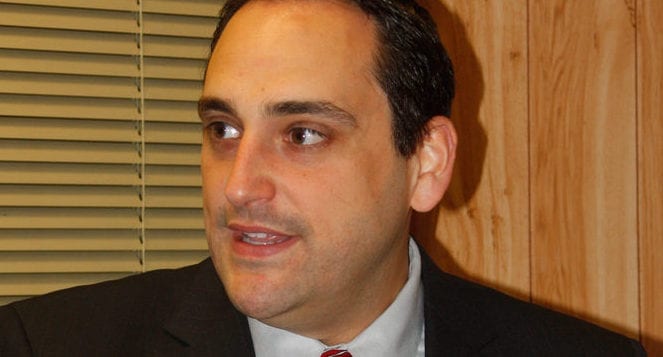Suffolk County’s own state Sen. John Flanagan has been elected to serve as temporary president and state Senate majority leader after former head Dean G. Skelos resigned from the post on Monday.
The Republican-led chamber appointed Flanagan (R-East Northport) as its new leader amid the arrest of Sen. Skelos (R-Rockville Centre) last week on federal corruption charges. The change in leadership comes after several Senate members pressured Skelos, a Long Islander who touts a more than 30-year tenure, to resign from his position.
Flanagan has been appointed the temporary position of president and State Senate majority leader for the remainder of the 2015-16 term, according to a video from his swearing-in.
“I am proud and humbled to have been chosen as temporary president and majority leader of the New York State Senate,” Flanagan said in a statement. “I thank my colleagues for the confidence they have placed in me. With this job comes a responsibility to lead and to listen, and to rebuild the public’s trust.”
Flanagan, 54, has held the position of senator since 2002. Prior to joining the Senate, he was a member of the New York State Assembly for 15 years.
State Sen. John A. DeFrancisco (R-Syracuse), who was vying for the majority position, spoke to Flanagan’s appointment on Monday and said there were no hard feelings.
“I know he is not only a great senator, he’s a great man and I’m proud to move his nomination,” DeFrancisco said.
Flanagan’s colleague, State Sen. Ken LaValle (R-Port Jefferson) also lauded the move.
“It gives me great joy, great pride to second the nomination of John Flanagan as our temporary president,” LaValle said. “John Flanagan has great intellect, great energy and he has a wonderful, wonderful demeanor that brings people together.”
Many of Flanagan’s colleagues spoke highly of the new majority leader prior to his swearing-in ceremony that took place in Albany following the 32 ayes he received out of 63 senators present.
“The Senate made the right decision by voting Sen. John Flanagan as the newest majority leader,” Assemblyman Chad Lupinacci (R-Melville) said in a statement. “Flanagan has a track record for getting things done in the Senate and working with lawmakers from both sides of the aisle.”
After his swearing in, Flanagan thanked Skelos for his decades of service and accomplishing the enactment of Megan’s Law, a law that publicizes the whereabouts of sex offenders.
“I have now had the good fortune of being in the Legislature for 29 years and I am proud to be in public service,” Flanagan said in a video from his swearing-in ceremony. “I spent 16 years in the Assembly in the minority, I’m now in my 13th year in the Senate, two of which [were] in the minority and I learned a lot being in both venues.”








